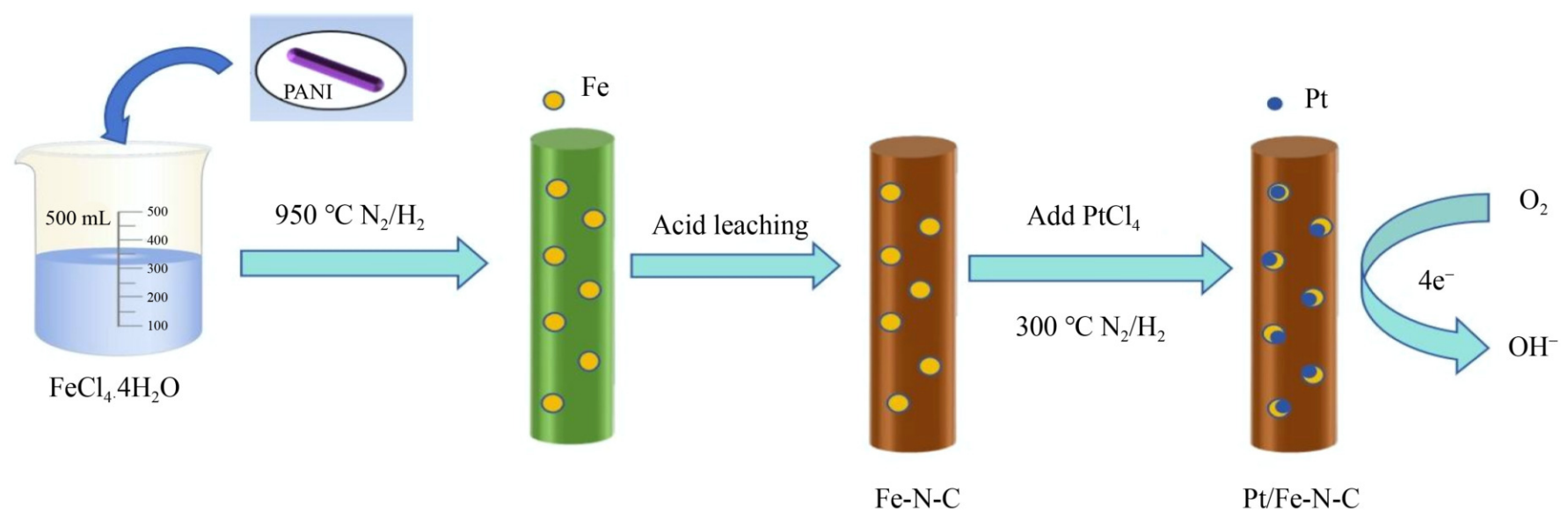Reviewed by Lexie CornerJun 10 2025
In a study published in Frontiers in Energy, researchers present a new method for producing an ultra-low platinum loading oxygen reduction reaction (ORR) electrocatalyst.
 Schematic diagram illustrating the synthesis process of the Pt/Fe-N-C catalyst. Image Credit: Higher Education Press
Schematic diagram illustrating the synthesis process of the Pt/Fe-N-C catalyst. Image Credit: Higher Education Press
The ORR is important in fuel cells and zinc-air batteries. However, the high cost and limited availability of platinum (Pt) catalysts have slowed the development of these technologies. Developing low-cost, efficient, and low-platinum catalysts is one way to improve ORR performance.
The researchers used the polyaniline (PANI) method to create Fe-N-C precursors. This approach ensures even distribution of Fe-N-C species and allows platinum ions to be absorbed more effectively. This leads to the formation of Pt-Fe bimetallic alloys. The interaction between platinum and Fe-N-C sites helps distribute platinum more evenly and creates smaller particles, which improves both activity and stability.
The Pt/Fe-N-C catalyst shows strong performance despite using only 1.79 wt% platinum. Its mass activity is twice that of conventional catalysts. It also achieves a peak power density of 200 mW/cm² in zinc-air batteries.
The catalyst is highly durable. It shows only a 20-mV drop in half-wave potential after 10,000 cycles in alkaline conditions. In acidic conditions, there is no significant change after the same number of cycles.
This study offers useful insights into how the structure of platinum-based catalysts can be improved to boost performance and stability. The ultra-low platinum ORR catalyst developed here could help lower the cost of fuel cells and zinc-air batteries, making them more practical for commercial use. These findings support the development of more efficient and affordable energy devices.
Journal Reference:
Tang, W., et al. (2025). An ultra-low platinum loading ORR electrocatalyst with high efficiency: Synergistic effects of Pt and Fe-N-C support. Frontiers in Energy. doi.org/10.1007/s11708-025-1006-4.